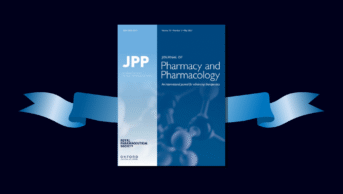
Wes Mountain/The Pharmaceutical Journal
In the intricate web of healthcare, the role of a pharmacist has developed and broadened significantly. Pharmacists now stand as vital players in enhancing patient outcomes, and within this transformation lies an unexplored path in healthcare that promises profound change: research in primary care. As we navigate this expanded role, it becomes evident that empowering pharmacists to embrace research roles within primary care could catalyse a remarkable shift in healthcare practices — a shift that is long overdue.
While research has made significant advances within secondary care, primary care has remained largely in the shadows. A notable void exists in the primary care setting when it comes to clinical trials involving investigational medicinal products (IMPs) — pharmaceutical products investigated in a clinical trial, which have either not been approved for general use or are licensed products being used in a different way from the licensing[1]. This gap is a missed opportunity to shape interventions, practices and policies tailored to the diverse needs of primary care patients.
Addressing misconceptions
Several factors contribute to the scarcity of research in primary care, particularly concerning IMPs. One prevalent misconception is that research is best suited for specialised institutions found in secondary or tertiary care settings. This notion blinds us to the unique challenges and opportunities present in the primary care environment, including access to a diverse patient population, community engagement to address the real needs of the population and the ability to partake in studies across various specialities.
The absence of pharmacists in pivotal research roles limits the profession’s capacity to drive research agendas
The prevailing notion that primary care primarily focuses on preventive medication, coupled with the tendency for clinical trials to be predominantly conducted in secondary or tertiary care settings, leads to a dismissal of the crucial interplay between primary care and patient health in the clinical trial landscape[1]. Moreover, the absence of pharmacists in pivotal research roles limits the profession’s capacity to drive research agendas. It is time to challenge these misconceptions and harness the expertise of those heavily involved in the front line of patient care.
The implications of this scarcity of primary care research and an absence of pharmacists in research roles are profound. Research drives innovation; it informs evidence-based practices and empowers clinicians to make informed decisions. The absence of substantial research in primary care is compromising the very foundation of healthcare delivery, preventing the optimisation of patient care. The primary care landscape is rife with intricacies that necessitate tailored solutions and it is research that holds the key to unlocking these.
Taking the lead
Hammersmith and Fulham Partnership (HFP), a primary care network (PCN), stands out as a unique example of where pharmacists are leading on research in primary care settings. This PCN, which includes five GP sites and caters to 75,000 registered individuals, is at the forefront of innovation in primary care[2].
HFP delivers high-quality care, prioritises educational initiatives and is now participating in research and delivering clinical trials within primary care. The heart of this transformation is the HFP Research Unit, which was established in 2019 and comprises GPs, who expertly balance their roles between general practice and research; full-time research nurses; National Institute for Health Research (NIHR) nursing staff and efficient research administrators; and, most recently, a research pharmacist.
The role of the research pharmacist
The HFP Research Unit initially focused on academic trials, including trials centring on hypertension, peripheral arterial disease and dementia, but it experienced a pivotal moment when it was selected as a site to deliver a commercial trial for a new COVID-19 vaccine.
Following the addition of a research pharmacist to the team, one major hurdle was the lack of pharmacy standard operating procedures, which meant that a tailored process needed to be created to guide the endeavours of the research unit. Additionally, the absence of an immediate backup pharmacist meant that strategies had to be devised to ensure seamless continuity in case of any exigencies.
The intricacies of IMP management — including storage and handling, accountability, maintaining the blind and logistical planning — within the primary care context presented another complex challenge that demanded innovative solutions. The uniqueness of having a research unit within primary care meant that there were no precedents or comparable models to emulate.
Furthermore, securing the necessary approvals to adapt study protocols to site requirements proved to be a complex process. The nature of the single-blinded trial introduced a dimension of complexity, as it restricted open communication with blinded team members for guidance and insights.
Amid these challenges, there emerged an array of invaluable benefits, including the tremendous scope for professional development. The interdisciplinary collaboration, characterised by multidisciplinary team interactions, provided a fertile ground for learning and growth. Leading in IMP management provided grounds for an expanding skillset, particularly applying ‘Good clinical practice’ standards and deepened understanding of the practical aspects of research in primary care. This experience has been a gateway to a realm of knowledge that bridges the gap between theory and application.
In essence, becoming a research pharmacist in primary care has been transformative, marked by hurdles that stimulated creative problem solving and a wealth of benefits that fuelled personal and professional growth. This shift has reaffirmed the importance of the pivotal role of research pharmacists in enhancing healthcare outcomes within the community setting. It also underscores the vital importance of dynamic, adaptable teams in driving forward the frontiers of medical research.
Work in progress
The importance of research in primary care is more recently being driven by NIHR and the Department of Health and Social Care in the O’Shaughnessy report, published in May 2023[1,3]. Funding initiatives by the NIHR have cast a spotlight on the transformative potential of research roles[3]. But these initiatives are not just monetary injections — they are a resounding endorsement of the pivotal role pharmacists can play in research[4]. Furthermore, the O’Shaughnessy report underscores the importance of embedding pharmacists within the healthcare landscape, championing their involvement in shaping evidence-based practices.
A counter-argument may surface, suggesting that primary care research is adequately addressed within the realm of secondary care; however, this assumption overlooks the nuanced dynamics unique to primary care. Additionally, the lack of roles available in primary care as a research pharmacist is significant. For a study to be delivered, a significant amount of time and financial investment must be made, but the wealth of experience among highly skilled healthcare professionals in primary care remains an under-utilised resource in the area of research. The patient diversity at HFP, with its wide ethnic range and varied medical histories, allows for the inclusion of a broader participant base mirroring the general population for more representative research outcomes. A primary care research pharmacist brings a distinctive skillset, insights and experiences, ensuring that research aligns precisely with the needs of the community. This profound understanding of medications, patient needs and clinical intricacies holds the potential to orchestrate the particulars of IMP management. Our clinical opinions serve as compasses, guiding research initiatives to reflect the reality of primary care.
Now, with NIHR funding and the O’Shaughnessy report paving the way, the possibilities are limitless. Empowering pharmacists to embrace research roles in primary care marks the dawn of a new era in healthcare. It is a journey where research-driven practices harmonise with the unique opportunities of the community setting. It is a journey where change is not just envisioned — it is ignited.
- 1Commercial Clinical Trials in the UK: The Lord O’Shaughnessy Review – Final Report. Department of Health and Social Care. 2023. https://www.gov.uk/government/publications/commercial-clinical-trials-in-the-uk-the-lord-oshaughnessy-review/commercial-clinical-trials-in-the-uk-the-lord-oshaughnessy-review-final-report (accessed January 2024)
- 2HFP Medical. HFP Medical. 2019. https://www.hfpmedical.com (accessed January 2024)
- 3Extra £30m a year to boost research careers for healthcare professionals. National Institute for Health Research. 2023. https://www.nihr.ac.uk/news/extra-30m-a-year-to-boost-research-careers-for-healthcare-professionals/34213 (accessed January 2024)
- 4Pharmacists to benefit from annual £30m research funding package. Pharmaceutical Journal. 2023. https://doi.org/10.1211/pj.2023.1.194615


